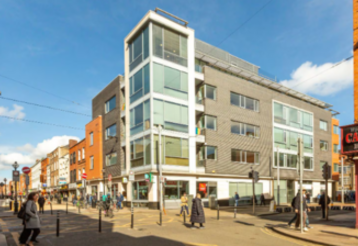Automobile
Renault Ireland more than doubles profits despite semi-conductor shortage

Group activity impacted by War in Ukraine and economic and trade sanctions imposed on Russia, as well as counter sanctions
Renault Ireland more than doubled its profits last year despite grappling with the shortage of semiconductors affecting vehicle supply and the Covid-19 pandemic.
The company’s accounts for the year ended December 31st, 2021, show it made a profit after tax of €883,567, which was up from €345,539 the year before. The directors did not recommend the payment of a dividend.
The group also generated turnover of more than €149 million, which was up from almost €128 million the year before. Total comprehensive income for the year just over €2 million, up significantly from €447,039 in 2020.
“The Irish car market was impacted by a combination of the shortage of semiconductors affecting vehicle supply and the Covid pandemic, albeit to a lesser degree than previous years,” the group said in a note attached to the accounts.
“There was a big increase in demand which drove volume increases as the economy rebounded from Covid, partly offset by supply constraints.”
It said the total Irish private car and light commercial vehicles market for 2021 finished at 133,561 vehicles, which constituted an increase of 21.5 per cent from the previous year’s figures.
“Renault Ireland maintained their strong performance within the market context and finished with a 7.2 per cent market share,” it said.
“While supply continues to affect the full market potential in 2022, the price increases in the industry for both new and used vehicles have helped maintain profit levels for Renault Ireland and the dealer network.”
In 2021, Renault Group was ranked seventh in the car market and second in the light commercial vehicles market, with shares of 6 per cent and 12.3 per cent respectively. Renault Group’s combined market ranking was fifth.
Renault said the conflict in Ukraine and the economic and trade sanctions gradually imposed on Russia, as well as the counter sanctions imposed by Russia, impacted the group’s activity.
“The areas concerned mainly include employee safety, the risk factor of supply chain failure, production and business interruption risk in Russia, the risk of inability to finance in Russia, and the risk of cyberattack and information systems failure,” it said.
At its meeting on March 23rd, 2022, Renault’s board of directors suspended the activities of its Moscow plant and decided to assess the possible options regarding its stake in Russian state-owned automobile manufacturing company Avtovaz.
The company said it successfully navigated the impacts of the pandemic and the ensuing supply constraints to ensure “another profitable year” for both the company and its dealer network.
“Improved margins and operational efficiencies have allowed the company to continue the profitable trajectory of previous years,” it said.
The average monthly number of employees, including the directors, during the year was unchanged from the year before at 27. Staff costs were down marginally at just under €2 million.


